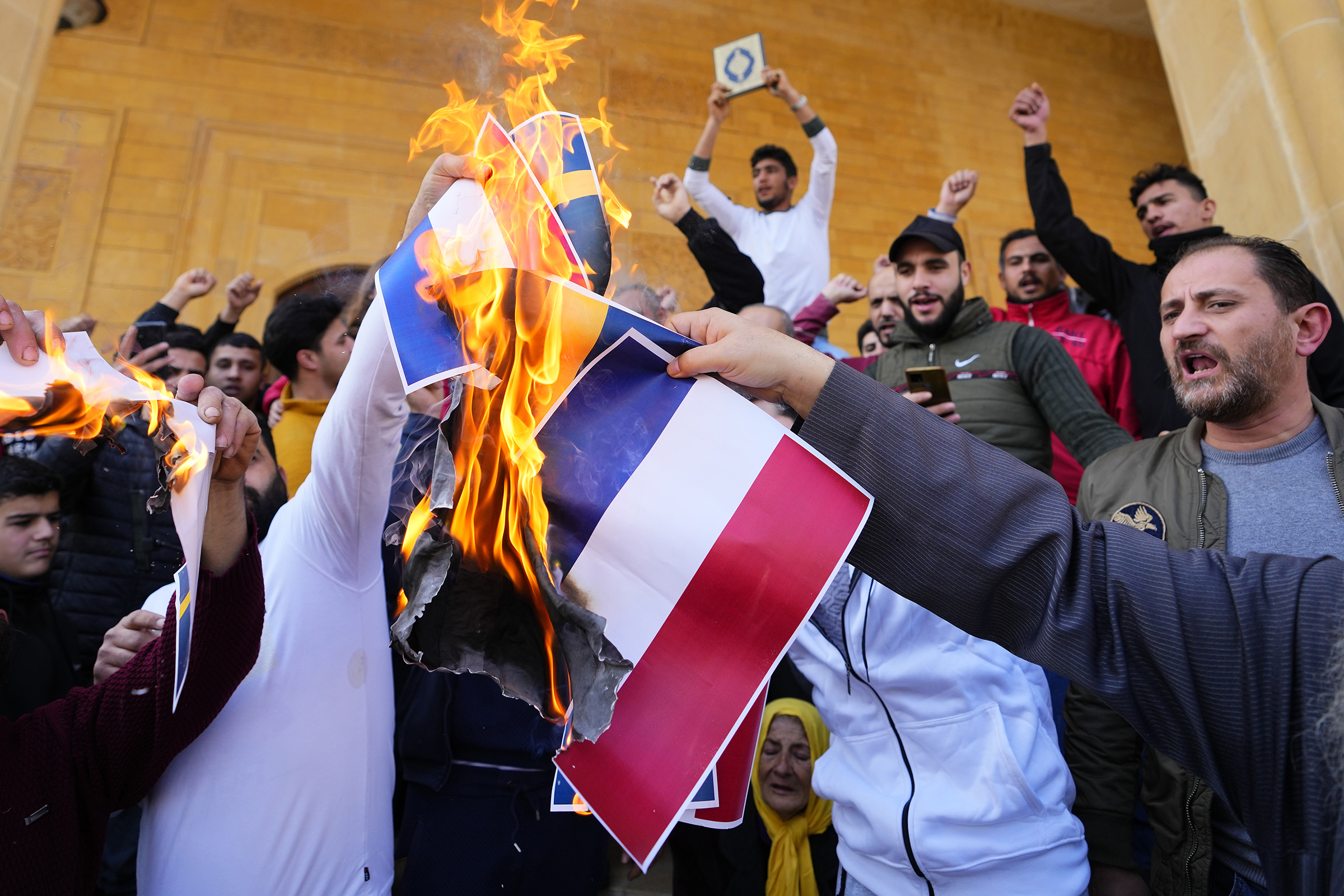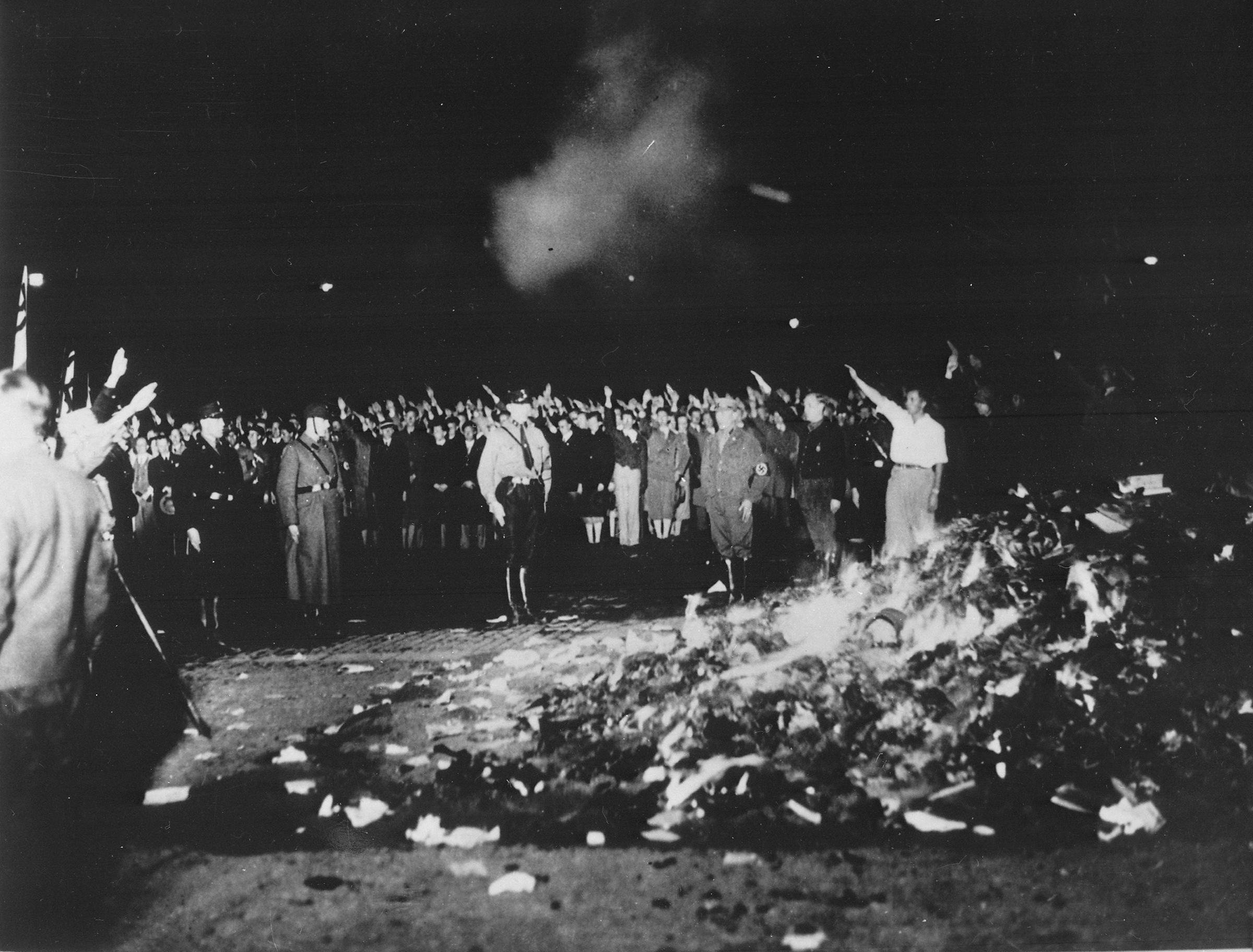Opinion
History tells us that burning sacred texts and other books never ends well
Those whose books are burned or banned are often erased from a country’s life and history.

(RNS) — This summer in Sweden, Salwan Momika, an Iraqi refugee with reported ties to an extremist Christian militia group, burned the Quran in front of a Stockholm mosque on Eid al-Adha and outside the Swedish Parliament building. As a result of the burnings, Iraq expelled Sweden’s ambassador and recalled its charge d’affaires. Violent protests took place around Sweden’s Embassy in Baghdad.
The incident also briefly aggravated a long-standing diplomatic tension between Turkey and Sweden over Sweden’s bid to become a NATO member. The tension played into Russia’s hand, as it sees the NATO enlargement process as a threat to its geopolitical interests in Europe.
The government in Stockholm is caught between that country’s exceptionally liberal freedom of expression laws and a bubbling Islamophobia and racism from the right. After the Quran burnings, Ulf Kristersson, the Swedish prime minister, accused “outsiders” of abusing the free speech laws to spread hate. However, Kristersson’s own governing coalition depends on the support of the Sweden Democrats, an anti-Islam and anti-immigration party with Neo-Nazi ties. This irony has not escaped Swedish Muslims, who say they feel violated by both the Quran burnings and the state’s refusal to stop them.
The Swedes share their predicament with other Scandinavian countries. In January in Denmark, the right-wing politician and anti-Islam Danish-Swedish provocateur Rasmus Paludan burned a Quran, reportedly under a public protest permit paid for by a journalist with ties to the Kremlin — and to the Sweden Democrats. This week, the Danish government introduced a bill that would outlaw the burning of the Quran or other religious texts.
There is nothing new about book burnings, even those that torch sacred texts. But their impact has changed: Before they became social media stunts, book burnings had two main functions — restricting access to texts and symbolically asserting power.

Scores of angry protesters in downtown Beirut burn the Swedish and Dutch flags after Friday prayers outside Mohammad al-Amin Mosque to denounce the recent desecration of Islam’s holy book by far-right activists in the European countries, Jan. 27, 2023. (AP Photo/Hassan Ammar)
To name just a few such recorded incidents: In 600 B.C., Jehoiakim, the king of Judah, burned the scrolls that recorded Jeremiah’s politically inconvenient (but accurate) prophecy that the Babylonian Empire would one day destroy the land of Judah. The Jewish historian Josephus recorded that in 168 B.C., the Seleucid monarch, Antiochus IV, ordered Jewish Books of the Law to be torn and burned in a series of persecutions that led to the Maccabean revolt. Antiochus prohibited the religious practices decreed in the Books of the Law in an attempt to Hellenize Jewish culture and effectively erase the Jews as a nation.
In an incident reminiscent of today’s Quran burnings, also described by Josephus, a Roman soldier nearly incited a Jewish revolt in year 50 by burning a Torah scroll in public. To head off unrest, the Roman commander Cumanus Ventidius had the soldier beheaded. In 303, the Roman emperor Diocletian ordered that the leaders of the Manichaean movement, as well as Christians, be burned together with their holy scriptures.
This tactic of physical violence and cultural devastation was taken up by Christians themselves after the empire’s conversion. In “The Darkening Age: The Christian Destruction of the Classical World,” Catherine Nixey described at length the destruction of the Middle Eastern city of Palmyra by Christian zealots, as well as brutal lynchings of freethinking philosophers and scientists such as Hypatia. Nixey blames hateful propaganda against non-Christians disseminated by church fathers.
During the13th-century Albigensian Crusade against the Cathars of the Languedoc, an anti-materialist church reform movement, the church ordered all Cathar texts destroyed by fire before unleashing a murderous campaign against Cathars across France; estimates of the dead range from 200,000 to 1 million. Historian Mark Gregory Pegg marks it as the introduction of genocide in the West, “linking divine salvation to mass murder.”
In the final decade of the 1400s in Granada, Spain, the Spanish Inquisition’s Grand Inquisitor Cardinal Jiménez de Cisneros oversaw the burning of multiple Torah scrolls and other Jewish books, as well as 5,000 Arabic manuscripts. In 1509, he followed by ordering the burning of libraries and archives of the northern African city of Oran as the Spanish forces began its occupation.
The powers that burn sacred texts understand that the violence is tantamount to violence against those to whom the texts belong, and is often prelude to it. Muslim and Jewish communities of Sweden sounded a warning earlier this year about the increasing intolerance against minorities, quoting the 19th century German Jewish writer and poet, Heinrich Heine. “Where they burn books,” Heine wrote, “they will, in the end, burn human beings too.” The quote, from Heine’s play “Almansor,” refers to the burning of the Quran as the Spanish eradicated the Muslim Moors from the Iberian Peninsula.

A Nazi book burning in Berlin’s Opernplatz on May 11, 1933. Photo by Georg Pahl/German Federal Archive/Creative Commons
Heine’s books were burned by Nazis on Opernplatz in Berlin in 1933, as Nazi organizations, as well as ordinary Germans, engaged in burning books by Jewish and Nazi opposition authors. On a single day, May 10, 1933, students in 34 university towns across Germany burned more than 25,000 books by Jewish intellectuals such as Karl Marx, Albert Einstein and Sigmund Freud. The Nazis raised book burning to a ceremony, giving the Nazi salute as they threw books on the flames.
A Polish Jewish lawyer, Rafal Lemkin, who was lucky to be granted asylum in the United States during World War II, coined in 1944 the term “cultural genocide” that he understood as a necessary component of genocide at large, committed for religious reasons,or for the purpose of conducting ethnic “cleansing.”
Today, as digital technologies allow us to preserve texts in archives, book burnings have largely lost their power to deny access to texts, but the same technology has increased their symbolic power as threatening acts aimed at communities represented in texts.
This dark history of threatening minority voices by destroying books is threaded through the increasingly common trend of book bans in American public schools and libraries. According to Pen America’s report, “Banned in the USA: State Laws Supercharge Book Suppression in Schools,” such bans in U.S. public schools increased by 28% in the first half of the 2022-23 academic year alone. Driven by conservative, white supremacist Christians, they have primarily targeted books that talked about race or racism (30%) or LGBTQ+ experiences (26%), mostly in Republican-governed states, mainly Texas and Florida.
Book bans function much like book burnings of the past. They express disdain for minority voices, while curtailing access to knowledge. School libraries are the primary source of book access for children from low-income and minority families, but they are also a way our society accommodates and recognizes the existence of those who are different. If children of color, children of immigrants, and LGBTQ+ youth cannot see themselves in the books they are offered at school, they are being erased from American history.
(Anna Piela is the author of “Wearing the Niqab: Muslim Women in the UK and the US.” She is also the senior writer at American Baptist Home Mission Societies and an ordained American Baptist Churches USA minister. The views expressed in this commentary do not necessarily reflect those of Religion News Service.)

No comments:
Post a Comment